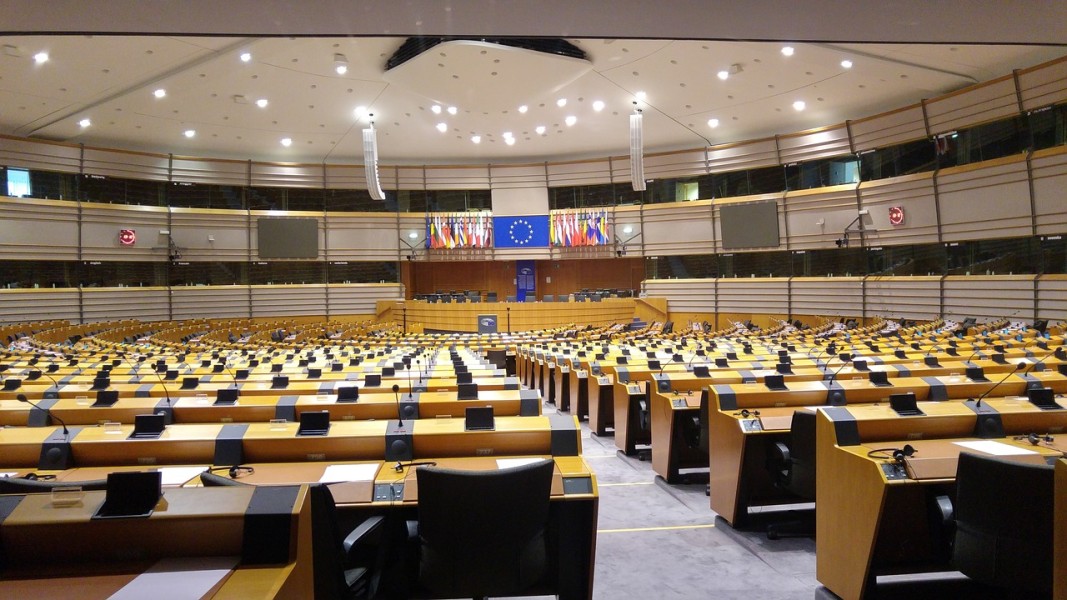A few months before the European elections, which will be held throughout the EU in the period June 6 to 9, and in the backdrop of the uncertain political situation in Bulgaria, Radan Kanev, MEP from the EPP group, elected from the DB list, made a forecast about the composition and policy of the new European Parliament. According to him, if early national parliamentary elections were held together with the elections for the European Parliament, this would lead to blurring of the important topic of what lies ahead in Europe for years to come.

"I am a fierce opponent of ‘two-in-one’ elections, because this would mean that the European debate would not take place in Bulgaria at all, even in its most polluted, propaganda-like form," Kanev says. According to him, holding of new parliamentary elections would hardly lead to a different result, but the important figures in Bulgarian politics will be busy with assembling the next majority and government and not with the important debate for the next five years as the formation of the new European institutions starts after the European elections. Radan Kanev defines this process as "a very delicate exchange of positions for policies" which will predetermine the political priorities for a five-year period. "We, who have always been criminally passive in these relations, will be completely absent this time," the MEP from the largest group in the EP says in an interview with Radio Bulgaria.

Despite the belated debate in Bulgaria about Europe, it seems that in the past two years the society has started to realize the importance of European legislation.
"We started to talk more about the balance between European and national policies, to understand that the European Parliament is not just a place where resolutions are voted, but where 2/3 of the legislation in our daily lives is prepared. All this is a topic of the European elections."
According to the Bulgarian MEP, expectations for the rise of Euroscepticism in the next European Parliament are greatly exaggerated.
"There is no news as to how the next parliament will be positioned both in terms of the unity of the European Union and in terms of our support for Ukraine,” Radan Kanev says. According to him, however, change can be expected in the field of economic and environmental policy. “The fact that the opponents of the common European policy in defense of Ukraine are too few among the so-called far-right parties is often overlooked. The most far-right group 'Identity and Democracy' is not united at all on the topic."

The current European Parliament works on the principle of a centrist majority between liberals, socialists and the EPP. The few issues on which no consensus is found indicate the existence of a stable reserve leftist majority.
"Most likely, in the next parliament, the reserve majority will be right-wing. But it will remain in reserve because nobody works with ‘Identity and Democracy’ and that will not change," Kanev says.
Publication in English: Al. Markov
Photos: Ani Petrova, Pixabay, BGNES
The Association of Bulgarian Schools in America invites children from the Bulgarian community in North America to participate in a competition dedicated to November 1 - National Awakeners' Day, the organization announced on its..
Robert Joseph Miller, Bulgaria’s Honorary Consul in Nevada, was awarded the prestigious “Golden Laurel Branch” of the Ministry of Foreign Affairs for his exceptional merits in maintaining the diplomatic relations between the US and Bulgaria. The award..
The cool autumn evenings give us a reason to immerse ourselves in the cosy atmosphere of restaurants in Sofia and try new flavours inspired by global culinary trends. Leading Italian travel platform praises Sofia in autumn..
On 27 October, the first meeting of Action CA-24150 “Values in Turbulent Times: Navigating Social Change and Challenges (VISTA)” took place in Brussels...
In the summer of 2014, photographer Philippe Bazin and philosopher Christiane Vollaire traveled around Bulgaria, investigating a series..
The European Commission praise s Montenegro’s progress toward EU membership North Macedonia needs decisive action and reforms to begin..

+359 2 9336 661
